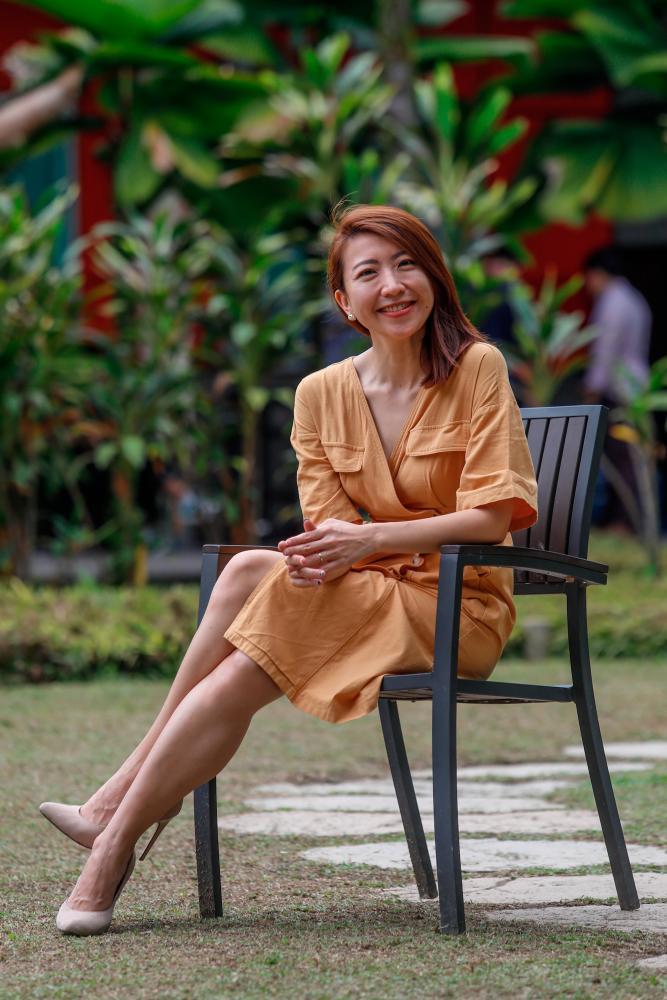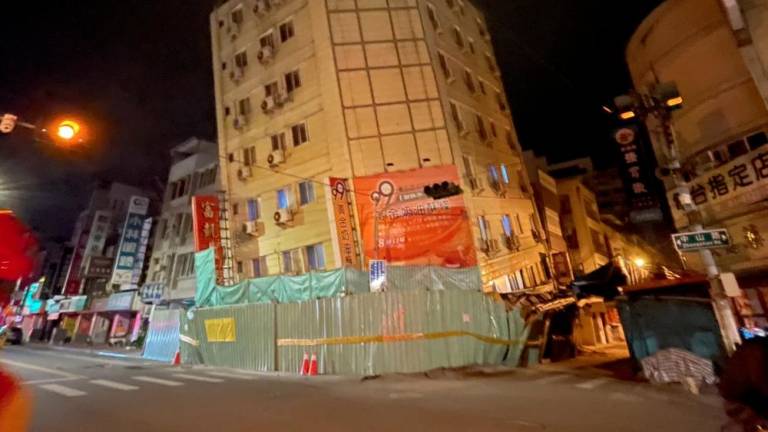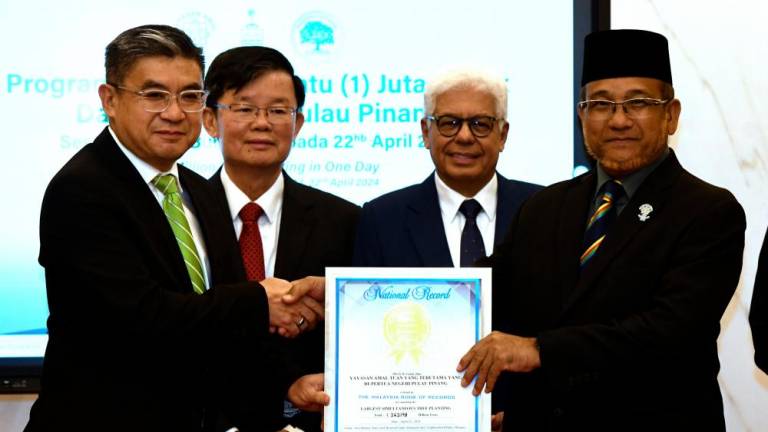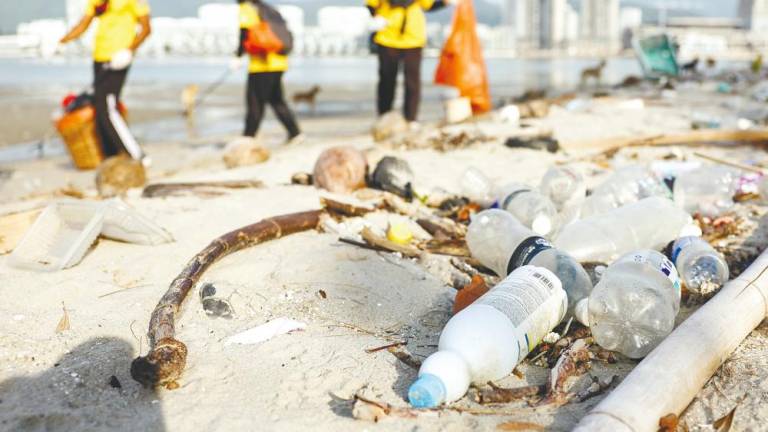SIOW HUI MEI knew for a fact that she wanted to be a part of the broadcasting industry, and she did it. Her strong passion for insightful reports on current affairs was influenced by her stint on the debate team back in high school.
Then at the age of 21, she kicked off her career as a TV host for a children’s educational programme Bei Bei’s Diary, which has allowed her to progress further with even more hosting opportunities.
During her 17 years in the media industry, Siow has produced and hosted many TV programmes, ranging from travel documentaries to game shows, and throughout it all she never lost her insatiable love for news and current affairs.
The 38-year-old current affairs newscaster on the Chinese news programme Prime Talk on Astro AEC says her job is enriching.
She shared: “I really enjoy reading the news and being in the know, so to be one of the first to receive first-hand news every day is something I really value.”
Over coffee, Siow spoke at length about the changes she has experienced in the industry and how she defines success.
Has it always been your dream to be a TV host?
“Yes, I would say so, or more specifically a newscaster. I remember coming back to Malaysia [for winter break while I was studying] in Melbourne, Australia, and coincidentally Astro had an open audition [which I joined] without knowing they were looking for a TV host to front a Chinese children’s show.
“To be frank, it wasn’t what I wanted but I figured why not? I gained so much experience from it and it was a great stepping stone to be hosting Malaysia’s first-ever Chinese children’s show.
“It opened up so many opportunities; I started hosting more entertainment shows and about three years later, I finally landed my first current affairs talk show and then moved on to the news segment.”
How was your first live talk show?
“Well, it was difficult because it was a one-hour live show. [You] can imagine how nervous I was. On top of that, I had to pick up incoming phone calls from the audience, while mediating [the panel].
“But I was lucky to have such a great team behind me, so I managed to pull through.”
Do you still experience stage fright?
“Not anymore, but I definitely did for the first few years, and I just grew out of it.
“Before the show starts, I’ll go on stage to rehearse and familiarise myself with the script too, in a way, to kill the tension so that I don’t get nervous.”
How has the broadcast industry changed over the last 10 years?
“We didn’t have social media 10 years ago, hence, we relied heavily on traditional media like TV for news and entertainment programmes. [Today], we tend to watch programmes on our smart devices because of the rise of social media and the internet, so we don’t find it necessary to turn on the TV to stay up-to-date on the news.
“There has been so many changes over the years that in order to stay relevant, conventional media has to also keep up with the changes in consumer preferences alongside technological advances, by tapping into social media and other online channels to create brand presence and awareness.”
What have you learned over the years to be a better newscaster?
“[Newscasters] are not just reading the script off the teleprompter, our jobs also include filtering through reliable sources and fact-checking legitimate news, because there is so much false information circulating online. Do your homework, check your facts, and only then publish it.”
What do you consider to be the most memorable project of your career?
“It would definitely be my first live talk show, it was also the first live Chinese-language talk show in Malaysia, where for the first time we had representatives from both the ruling party and the opposition party debating on a platform, which back then, was a huge thing.”
What is your greatest achievement outside of work?
“This is difficult, honestly, I don’t think I’ve been a good daughter, wife and sister because all my time has gone to work.
“My husband is incredibly supportive but sometimes he complains when I spend too much time at work, and I totally understand that ... we’ve only celebrated our wedding anniversary once.
“After I got married, I tried to manage work-life balance but prior to that, [it was] pretty much non-existent since I basically worked for seven days a week.”
How do you measure success?
“I think success comes in different phases throughout our lives; in a sense, success is ever-changing. [I’ve] never felt that I’ve succeeded because in every stage of my life I tend to raise the benchmark of what success is and could be.
“I may have felt a sense of success when I landed my first talk show ... but that accomplishment doesn’t measure success in the long run. [I] felt like I need to [raise] my game to be a better newscaster, to create better content and to ultimately perfect my skills.
“It’s also hard to measure success in my personal life, simply because I’ve not experienced what it is like to be a mother, and I’ve also not fulfilled the role of a wife.
“I’ve always had the idea that perhaps success is having a perfect work-life balance, but to be honest, I have not been working towards it.”













